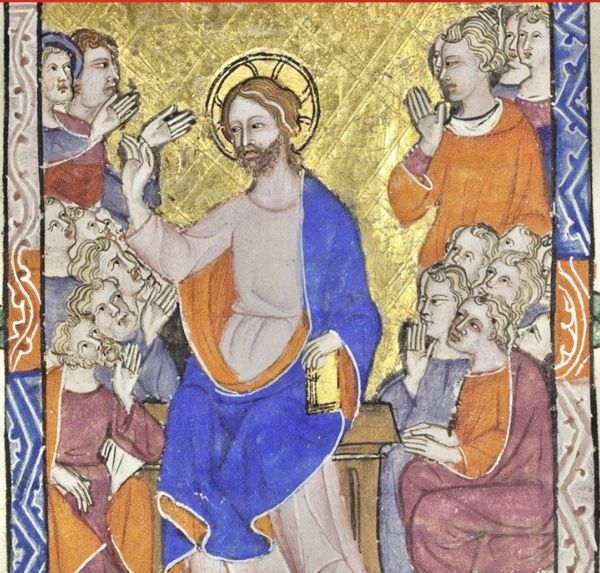Jesus invites us to strive to enter through the narrow door, knowing that works speak for themselves and that the last will be first.
These themes are assiduously present in the Franciscan Sources.
After his conversion, the Son of Peter Bernardone places great emphasis on the "strive to enter through the narrow gate" recommended by Jesus.
Indeed, in what we call the "Writings of Francis" [mostly dictated to some friar who became his secretary] his firm adherence to the Gospel emerges clearly.
In the Regola non bollata (1221) we read among the exhortations addressed to his brothers:
"And let them strive to enter through the narrow gate, for the Lord says: Narrow is the gate and narrow the way that leads to life; and there are few who find it" (FF 37).
And well aware of the evangelical requirement of humility and minority, this is how he responded to his own regarding who should be considered a true friar minor:
"Take a dead body," he said, "and put it wherever you like. And you will see that if you move it, it will not object: if you drop it, it will not protest.
If you put it on a chair, it will not look up, but down.
If you put a purple robe on him, he will look doubly pale.
This is the true obedient one: he who does not judge why they move him; he does not care where he is assigned; he does not insist on being transferred; elected to an office, he maintains his usual humility; the more he is honoured, the more he considers himself unworthy' (FF 1107).
And Clare was no less!
In the Testament left to the sisters:
"But because narrow is the way and the path, and narrow is the gate by which one sets out and enters into life, few are those who tread it and enter it; and if there are those who walk in it for a little while, very few persevere in it.
Blessed, however, are those to whom it is granted to walk this way and persevere in it to the end" (FF 2850).
And in the Legend:
"From then on, she no longer refused any servile duties, to the point that, for the most part, it was she who poured water on her sisters' hands, stood to assist them while they sat and served them at table while they ate" (FF 3180).
Already, those who in life have been considered last or made least for the sake of the Gospel will be first in the Kingdom of God!
«And behold, there are last who will be first, and there are first who will be last» (Lk 13:30)
Wednesday, 30th wk. in O.T. (Lk 13:22-30)












